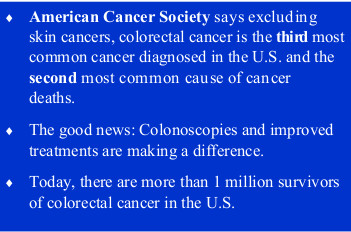Bottom Line : A Colonoscopy Can Save Your Life
November 6, 2019
By : Matthew Carns, MD

Did you know you can prevent colorectal cancer by getting a colonoscopy? A colonoscopy is the only test that can prevent colon cancer by finding and removing precancerous polyps before they turn into cancer. This important test also detects cancer early, often before people notice symptoms. Colorectal cancer is highly treatable when discovered early.
When you turn 50, it’s time to schedule your first colonoscopy. Colorectal cancer – cancer in the colon or rectum – is found most often in people age 50 or older. That’s why the U.S. Preventive Services Task Force recommends adults age 50 to 75 get screened for colorectal cancer every 10 years.
A colonoscopy examines the inside lining of your colon with a camera attached to a flexible tube. They are performed at the Mankato Clinic Endoscopy Center. Patients may receive medication to make the procedure as comfortable and safe as we can.
You do need to clean out your bowels prior to the procedure. You will receive instructions on changing your diet and completing a bowel preparation.
If results are normal, you will not need a colonoscopy for 10 years. Depending on the number or types of polyps, a colonoscopy may be recommended in three or five years. You will receive a letter or phone call explaining your results. Health plans are required to cover colorectal cancer screening tests, often without co-pays or deductibles. Be sure to check with your insurance company first.
Is 50 Early Enough?
At any age, talk to your healthcare provider immediately if you notice rectal bleeding, pain or a change in your bowel movements. Many younger people diagnosed with colorectal cancer have rectal bleeding.
Data shows colorectal cancer is affecting people younger than age 50 and incidence rates are rising. The American Cancer Society recommends beginning colorectal cancer screening at age 45. The U.S. Preventive Services Task Force has not adopted this recommendation yet for people who are at average risk.
However, you may have risk factors that require earlier screenings. If you have a family history of colorectal cancer or polyps, you should be screened at age 40 or 10 years before the age of the youngest case in your immediate family. If you have a personal history of cancer, ulcerative colitis, inflammatory bowel disease or Crohn’s disease, talk to your primary care provider about being screened before age 50. If you are African American, please talk with their provider about being screened at age 45.